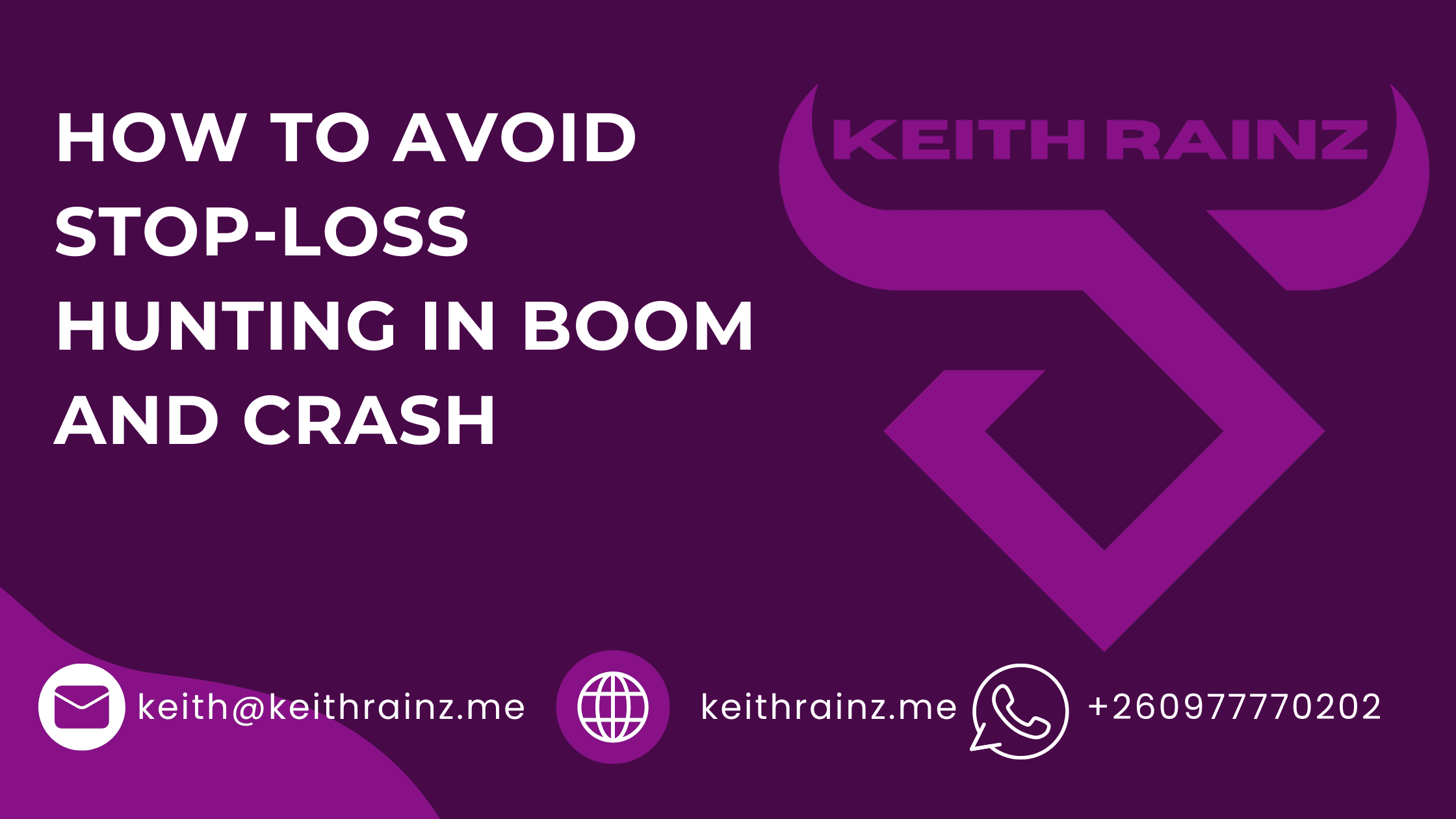Stop loss hunting is when you enter a trade and set your stop loss and then the market hits your stop loss and reverses back towards your take profit.
Let me begin with a query. Do you have any regrets about your recent stop-loss? Is it possible that the market has just pulled you out of a trade and flown to your target price? I’m sure if you’re a trader, you’ve had similar situations. It’s known as Stop-Loss Hunting, and it’s a real market phenomenon also in Boom and Crash.
Many traders worry about market manipulation and how the market hits their stop-loss just to flip again. It’s not surprising to me because I’ve had the same problem since I first started trading. Stop-Loss hunting is undoubtedly the majority of traders’ greatest nightmare, and in order to be lucrative, every trader must learn to avoid it.
HOW TO AVOID STOP-LOSS HUNTING IN BOOM AND CRASH
1 have patience while trading Boom and Crash
The majority of retail traders are day traders and scalpers. Even in the worst market conditions, they attempt to find opportunities in the market and treat trading as a hobby. This desire to trade no matter what leads to poor trade selection and, in the long run, massive losses.
To be a successful trader, you must learn to be patient and accept that the market will always exist and that you can trade as long as you have equity. Trading has the advantage of allowing you to be your own boss and take vacations whenever you want.
That being stated, wait for your entry opportunities calmly and don’t trade merely to trade. Create your chart, detect different trends, and do a thorough market analysis. When you’ve finished evaluating the market, think like a psychologist rather than a trader. Here’s how to do it:
While the majority of retail traders lose money, huge whales like banks are rarely mentioned when they fail. The reason behind this is that trading is not a habit for them, and they approach each deal with caution and adhere to rigorous guidelines.
Furthermore, many firms are mostly looking for long-term positions and will be willing to wait weeks or months if necessary. They will only come and take their fair portion of the market once the market reaches their chosen price zone and provides liquidity (by throwing out traders). Here’s what you can learn from these businesses:
They can’t trade if there’s no liquidity, and they’re expert traders who would go to any length to get into the market. Simply wait for them to finish their work, and when everyone in the group begins to whine about the day, you know it’s time to go big.
2 Avoid Placing Your Stop-Loss Too Close while trading Boom and Crash
Where do you usually put your stop-loss order? Right below the demand zone/support level or right above the supply zone/resistance level? How frequently does it function? It only happens once in a blue moon!!
Scalpers and day traders, in particular, struggle with support and resistance levels. The market will sometimes ferociously break into a level and then reverse once it reaches your stop-loss. Avoid placing your stop-loss too close to your support or resistance level to avoid stop-loss hunting.
Conclusion
Stop-hunting is all over the place. Whales profit from retail traders in all markets, including currencies, commodities, indices, and the stock market. To be a successful trader, you must accept the reality that it is a real thing, and you must use caution when dealing with it.
To avoid stop-loss hunting, you must be patient. When trading against the trend, be patient in activating your transactions and only depend on good data. Additionally, determine your risk/reward ratio and position size accordingly.
Removing your stop-loss is a bad idea, as it can result in your trading account being wiped out on a turbulent day if you cannot know when to exit.
Lastly, I am offering Boom and Crash signals which are reliable.







